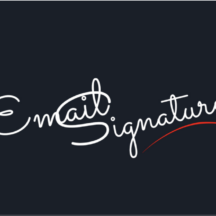How to build a personal brand
Start shaping your personal brand, so it can shape your future.
Everyone has a personal brand, but not everyone knows how to use it to their own advantage. A good reputation can carry more weight than your experience and skills put together – people do business with people, not portfolios! If you take a strategic approach to building your brand, it will soon replace your business card.
This guide is for everyone who wants to improve their situation – be that to find a better job, win more clients, succeed as a freelancer or earn more industry recognition.
Having a personal brand is a key ingredient in the recipe for success. When you build a personal brand that’s associated with your top skills or expertise, you let it do the talking for you.
So what elements come into play when we talk about a personal brand? How can you ensure your brand accurately reflects your expertise and personality? And how do you put it to work?
What is a personal brand?
If we look at people like Richard Branson, Elon Musk, or Oprah Winfrey, the idea is pretty clear. Their names carry a certain weight not only because they’re famous but because everything they do is a reflection of their vision and mission in life. They’ve managed to build a whole network of strong, positive associations that make them truly unique and different from everyone else.
That’s what a personal brand does – it celebrates and enhances your authenticity. It’s a combination of your values, passions, and talents and how they are perceived by others.
If you’re not entirely sure whether you actually need a strong personal brand, here are a few examples of when having a personal brand can come in handy:
- When you’re looking for a new job
- When you want to make a career switch
- When you’re planning to branch out on your own
- When you want to be more successful in your position
- When you want to win more clients or generate more business
- When you want to build a great network of like-minded professionals
- When you want to earn industry recognition
To lay a strong foundation for a personal brand, you need to tap into your genuine, individual self and look at where your character and personality stems from.
So take a pen and a piece of paper and let’s do some soul-searching.

What are the foundations of a personal brand?
1. Your values
Values are what we hold most important in life. It helps us think about our decisions and drives us in the right direction towards our goals.
For example, a person’s values could be the following:
- Family
- Career Development
- Personal Growth
But everyone is different, so take a moment to think about the situations or people that make you happy and jot down your ideas. There’s no limit to the values you can include!
2. Your passions
Passions are the things you love to do. They’re rewarding experiences that drive your personal and professional life.

For example, someones’ personal passions could be:
- Family
- Cooking
- Travel
And professional passions are:
- Writing
- Technology
- Building Brands
Think about what you’re passionate about. Combined with your values, writing out your passions will provide a better insight into where you see yourself in the future, professionally and in your personal life. Having a strong personal brand will help you on your way to achieving these!
3. Perception
This step is about engaging with friends, family, and peers to find out how they see you – how is your personal brand perceived through their eyes?
You may think that your own perception of yourself is what really matters here, but creating a personal brand is all about how others see you and what they think you stand for.
To be able to shift that perception you need to know what it is first!
So ask people about what they believe your values are, what passions drive you and what skills and personality traits you have.
4. Future goals
Where do you see yourself in 5 years’ time? Yes, we all hate this question, but it does make you think about the future and your overall purpose. This is where your values, passions, and finding out more of your current personal brand come in. Take a moment to think about your ultimate goal in life and what your dream is.
As an example, let’s say you work in sales at the moment but your dream is to actually open a coffee shop. How can your personal brand help you in this new endeavor? By giving you a massive boost in credibility!
If you concentrate all your efforts in building your personal brand as an expert of artisan coffee roasting, when you finally hand in your notice and throw yourself into this new project, you’ll find yourself with more opportunities than you ever expected. To build up your personal brand, you could start by writing a personal blog on the art of making coffee and ensuring all your social media channels are in sync. Then move on to hosting a regular coffee tasting in your home and making connections with the best local baristas.

This is just the beginning. Even if your dream is not to become an artisan coffee shop owner, be encouraged to get out there and be seen – build your credibility and show everyone that you are passionate about what you do!
Develop your personal brand with these 7 top tips
1. Creativity & personal branding
We often make the mistake of attributing creativity to certain professions such as designers, writers, or chefs. Although true, you don’t need to have this sort of background to be creative!
Creativity is not only about what you do, it’s also about how you do it.
Creative people are usually perceived as assets. Everyone wants to work with a person who is brimming with unconventional ideas to get a job done. In many professional arenas “going the extra mile” is also considered creative – whatever it takes to achieve the goals!
So the first step to shaping your personal brand is discovering the right platforms or mediums to showcase your creativity.
Pick relevant samples of your work that enhance your best qualities and support your professional image, then develop your creative portfolio. Think big – you could write some case studies, take screenshots or pictures of your work or even shoot a video testimonial, whatever is a representation of YOU.
2. Be memorable
Think about the people that have left a long-lasting impression on you.
- What was so special about them?
- Were they brilliant conversationalists?
- Did their fashion style impress you?
- Did they talk to you about something amazing they do in their free time – extreme hobbies or charitable work?
- Maybe they just showed a particular interest in your work?

To some people, it comes naturally, but this doesn’t mean that you can’t stand out too!
One of the simplest ways to resonate with other people is by drawing on your passions and values. It’s common knowledge that people tend to buy from people they like!
So, when you meet new people, talk about your hobbies and interests to open up a broad and engaging conversation, this will help you become memorable. The more personable you are, the more likely you will stay in someone’s mind.
3. Consistency
It’s a really simple one. Consistency helps build trust and people are generally more comfortable working with someone they can thoroughly rely on.
There are many ways to incorporate consistency into what you do.
For example, if you have a blog, publish regular posts. If you’re active on social media, use online tools to push out content that’s relevant to your field of expertise daily. If you’re pursuing freelance gigs, deliver the same level and quality of work every time.

4. Credibility
No matter your profession, credibility is undoubtedly one of the pillars of your career success.
Our credibility can be affected by anything we do online or offline, this could be an inappropriate joke or a rude comment for example that could have an impact on your personal brand image.
One of the most effective techniques used to improve your credibility is to associate yourself with other, more established figures in your area.
To do this you could form a creative partnership with someone by working on the same project or you could boost your visibility by creating content and publishing it on a credible website. You could also start building out your own website, which may make it easier to have a relationship with your target audience.
Being associated with different brands and outlets on reputable websites by being mentioned in testimonials or logos can really help boost your credibility. Give it a try!
5. Professional profile
Having a professional headshot or image is great when building your personal brand. By referring back to the consistency element we talked about, having the same headshot throughout your social media profiles, on emails, your personal website, and on any other online platform will help people recognise you and add to your overall credibility.
Everything from the clothes you wear to your facial expression can influence people’s perception of you. So don’t turn a blind eye to this – invest in getting some professional photos!

6. Email signatures for personal branding
An email signature is your business card in the online world.
A good email signature looks professional, has all the important information, and loads quickly on all browsers.
If you don’t know how to do this yourself, you can easily find someone on PeoplePerHour who will do it for you for a reasonable price.
7. Online presence
A personal website is an extension of you, so it has to look and feel professional to make the right impression.
If you’re serious about building a memorable and credible personal brand, having a stand-out website is a must! You can use the site to host your portfolio, share regular updates on your work and life and also sell your services.
Several things that you need to take into consideration when crafting your own site are – professional images, compelling copy, great website design, and a strong “About Me” section.
Top tip: to win at Seach Engine Optimization (SEO), purchase a website domain that displays your full name rather than a nickname or company name!

We hope this guide has helped provide some more insight and given you the confidence boost you need to start building your personal brand – good luck!

















